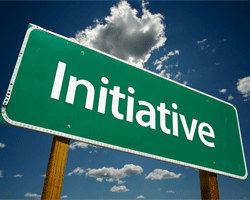
Leadership
Learn to Lead
All individuals have a story of their own but what leads to success in leadership? The answer may vary but wisdom, intelligence, and creativity are leadership qualities that makes a successful leader. A successful leader synthesizes the WIC approach through compelling stories (Sternberg, 2008). Stories are social constructions of individual experiences with beginning, middle, and end (Sternberg, 2008). People view leaders through their stories; all stories covey a message that has a plot, theme, and characteristics. Find out yours, explore through this website to learn more on leadership. Enjoy!
3. Identify and reflect on leadership qualities.
6 Simple Ways to Improve your Leadership Skills:
Want to develop leadership qualitites?
Check out the 6 Simple Ways
Over the years, influential leaders like Nelson Mandela and Mahatma Gandhi have made great contribution to the society. They are viewed as examples of reat leader-teachers. What do you think they share in common? What are these qualities? And do you think you have what it takes to be a leader in the field of teaching and learning? Discover, learn, and reflect upon your own leadership qualities. Enjoy!
Not about the platform
The art of and not or
Ubiquity
Not tone Deaf
Willing to take the hit
Alignment
No paralysis
Understand Compromise
7 Leadership Styles:
1. Charismatic Leadership
2. Participative Leadership
3. Situation Leadership
4. Transactional Leadership
5. Transformational Leadership
6. The Quiet Leader
7. Servant Leadership
1. Take Initiative: Develop leadership skills by doing extra work beyond the job description!
2. Inspire and Motivate: Know the difference between being assertive and being oppressive; goal is to maximize performance and to acheive this, inspire and motivate others to work.
3. Analyze your Strengths and Weaknesses: A Strength, Weakness, Opportunities and Threats (SWOT) analysis is very essential for a leader. A leader needs to be aware of their strenghts and weakness by writing them down and self-reflect on how they feel about it. After identifying these weaknesses, a leader will work towards improving these.
4. Listen: A good leader must also be a good listener; feedback from others is essential. This allows the leader to understand their team. Direct eye contact is crucial as well as, responses which are intelligent and appropriate. Two-way communication is important; both verbal and body language.
5. Deal with Conflicts: Leaders must know how to deal with conflicts because they will arise. To be able to deal with conflicts effectively, a leader should have understanding of how to communicate and work with all types of people. Leaders must be honest and straightforward – not take sides or show bias when helping to resolve conflicts.
6. Be a Follower: A successful leader should learn to respect and recognize the value of their team members. He or she should not only encourage team members to learn, but also learn in the process. This will ensure overall progress and enhance the performance of everyone within the team, including the leader himself.
(Franscisco, 2013)







Importance of Emotionally Intelligent Leaders
The Role Confidence Plays in Leadership
Character: llustrated through integrity. Do what you said you’d do, when you said you’d do it, and do it with excellence even if (and especially when) nobody is watching. Do the right thing, even when it’s uncomfortable, Integrity defines leadership.
Commitment: Create a clear Vision Statement for your life and your business that inspires you and encompasses your highest values and priorities. Be committed even when you don’t want to, don’t feel like it, or it isn’t fun. Stand firm in your commitments as it will push you to achieve anything you say that you will, regardless of feelings, circumstances or challenges. Commitment inspires leadership.
Courage: Act courageous even when you feel it the least. Only when you act in the face of fear you validate your true bravery and boldness. Accept challenges. Courage cultivates leadership.
Confidence: Confidence is defined by your life experience. Remember that you bring unique gifts, talents and skills that no one else could possibly bring. Precisely because no one else has walked your path, you embody expertise and wisdom that is incomparable. Confidence nurtures leadership.
Communication: Say what needs to be said – even when no one wants to hear it–or better yet, when no one else is willing to say it. With compassion and diplomacy, communicate openly and directly. Allow others to communicate freely and honestly as well, without fear of retribution or judgment. Sincere and genuine communication is a contribution, entirely of its own. No leader has been truly great without strong communication. Communication conveys leadership.
(Williams, 2013)
Thank people who have the guts to give you feedback
Ask for feedback
Clarify your long-term goal
Take Action
Apologize
Don’t rely on the ‘either/or’ solution
Appoint or hire a coach
Don’t communicate when you’re angry, frustrated, or upset
As Francisco Dao says, “Self-confidence is the fundamental basis from which leadership grows. Trying to teach leadership without first building confidence is like building a house on a foundation of sand. It may have a nice coat of paint, but it is ultimately shaky at best.”
(Stark, 2012)
What it takes to be a great Leader...
Based on these 5 elements, Do You Have What It Takes To Be A Great Leader?
Read 20 statements and award yourself a score for each answer!
Now, its time for a TEST
Please click on the icon posted above or below as "Assessment Info". Good Luck!













